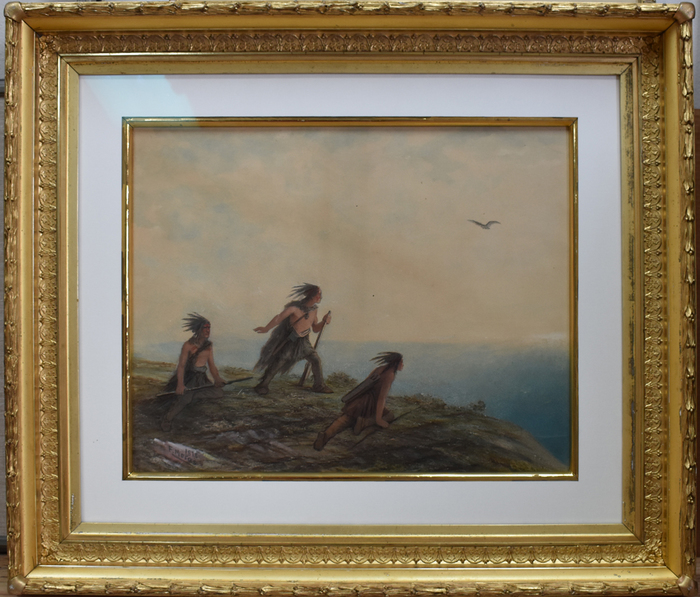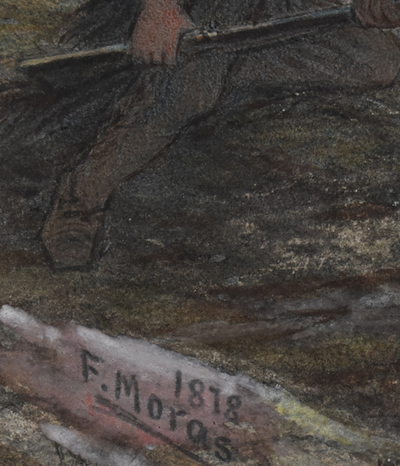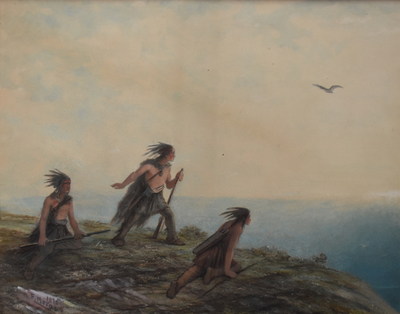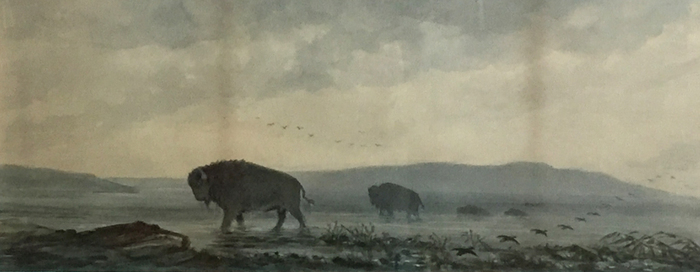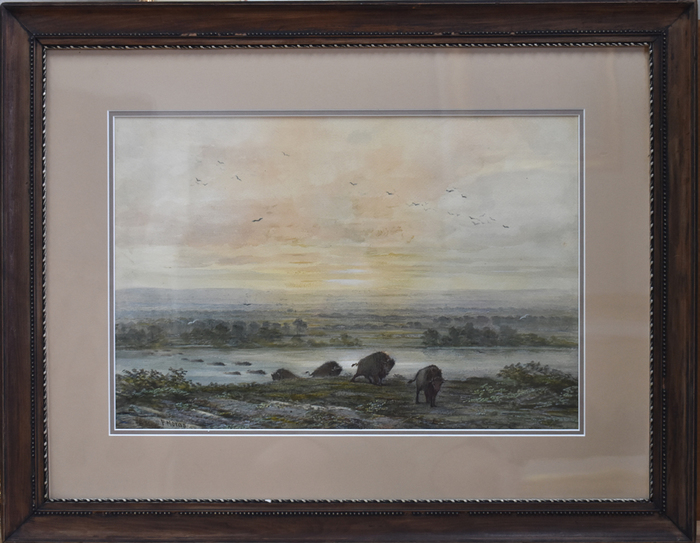Moras, Ferdinand
Date
1821-July 10, 1908
Description
Ferdinand Moras, the noted
Philadelphia chromolithographer, was born in 1821 near Aachen, Germany,
and trained as a lithographer in Elberfeld (under Peter Wilhem Kreeft)
and Dusseldorf, Germany. He practiced lithography in Belgium, France,
and Scotland, and London (ca. 1840-1853) before he arrived in
Philadelphia aboard the "City of Glasgow" ship with his family on
January 31, 1854. Within the year, Scottish-born lithographer David
Chillas engaged Moras as his leading artist and general manager. Moras's
work for Chillas included an advertisement for Chillas's establishment
and the advertisement "M. L. Hallowell & Co., Importer and Jobber
in Silk Goods." He also created a map for the Pittston Coal Company with
the imprint "F. Moras lith. 109 S 4th St. Phila." that was published in
an 1854 pamphlet. Tax assessment records from 1864 list him as
lithographer and creator of "labels, checks & cards." He was also
responsible for "Gedichte und Randzeichnungen" (1882) a book of poetry
noted as a fine example of pen-lithography.
Although Moras first appeared in
Philadelphia city directories in 1858 at 609 Chestnut Street (also
tenanted by Theodore Leonhardt & Co.), his personal memorandum
indicates he started his own firm in 1856. In 1859, he affiliated with
J. H. Camp and the pair created the invitation "Charity Ball of the Sons
of Malta at the American Academy of Music Philadelphia." Camp later
operated with Moras from 609 Chestnut Street from 1872 to 1874.
Subsequent locations of Moras's shop included 109 South Fourth Street
(1860-1866); 610 Jayne Street (1867-1869) - damaged seriously by water
as a result of a fire started in a neighboring property in January 1866;
609 Chestnut Street (1869-1890); and 437 North Eleventh Street
(1891-1896). In 1874, Moras owned approximately $20,000 worth of
lithographic stones and cash. During the 1870s, he also executed plates
for Duhring's "Atlas of Skin Diseases" (1878) and "The Medical and
Surgical History of the War of the Rebellion" (1879). By 1888 he was
described by creditors as "careful in his management" and his estimated
worth had increased to about $30,000.
In the later 19th century as Moras
continued in the trade, he was also very active in German and artists'
societies and lectured and wrote on the subjects, including a
presentation about Carl Henirich Schmolze at the German Artist's
Association in 1883 (published in 1885). In addition, he exhibited and
was awarded for his watercolors at the American Art Association in 1903.
Moras immigrated to the United States
with his wife, Catherine (ca. 1822-1911), and two children: Ferdinand
(1848 [Edinburgh]-1887), later a lithographer, and Mary (born 1851 in
England). From 1861, the family resided at 472 North Sixth Street (Ward
13) for several decades and expanded to include three more living
children: Bertha (b. ca. 1855), Louisa (b. ca. 1857), and Jennie (b.
ca. 1860). Willie (b. ca. 1854) and Charles (b. ca. 1856) Moras,
possibly nephews, also resided with the family. By 1900, Moras was
retired and he and his wife lived with his daughter and her family at
6129 McCallum Street in Germantown. He passed away a year after a severe
fall down the stairs at his son-in-law's residence on July 10, 1908.
Is part of
Philadelphia on Stone Biographical Dictionary of Lithographers
Cited in
Census 1860, 1870, 1880, 1900
Email correspondence with Deb McDonald, April 1, 2010
Groce & Wallace, 453
Last, 213
Library Company of Philadelphia Research File
Merrill, 186
Pennsylvania, Vol. 155, p. 10, R.G. Dun & Co. Collection, microfilm, Hagley Museum & Library
Peters, 289
Philadelphia Business & City Directories, 1858-1896 (intermittently)
Philadelphia Inquirer, July 12, 1908
Philadelphia Passenger Lists, 1800-1945
"Ferdinand Moras," The Lithographer and Printer, April 11, 1885, 223-224
The Publisher's Weekly, July 18, 1908, 78
U. S. IRS Tax Assessment Lists, 1862-1918
Location
Philadelphia on Stone Biographical Dictionary of Lithographers
